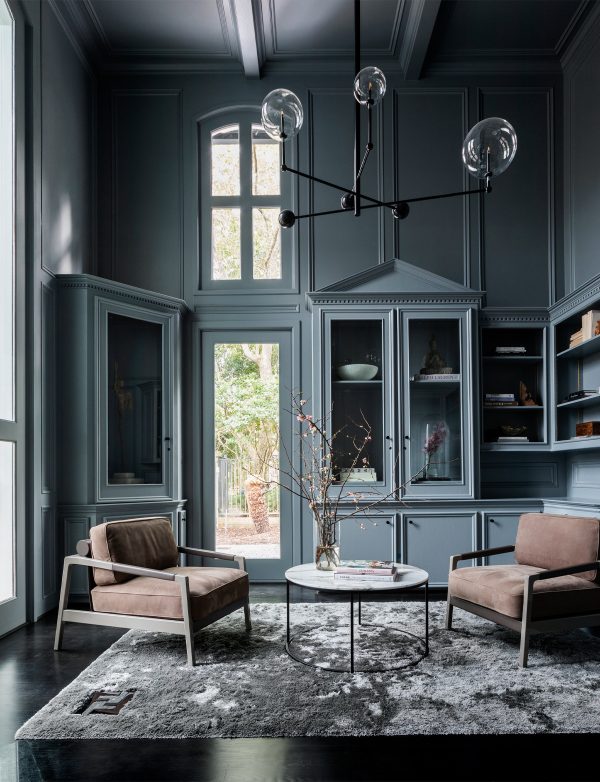In the world of interior design, creating spaces that are visually appealing, functional, and reflective of personal style requires a unique blend of creativity, expertise, and attention to detail. While many homeowners enjoy the excitement of decorating their own spaces, there are certain situations where hiring an interior designer becomes a wise investment. Whether you’re embarking on a major renovation, constructing a new home, or simply seeking professional guidance to elevate your interior, knowing when to bring in an interior designer can make a world of difference.
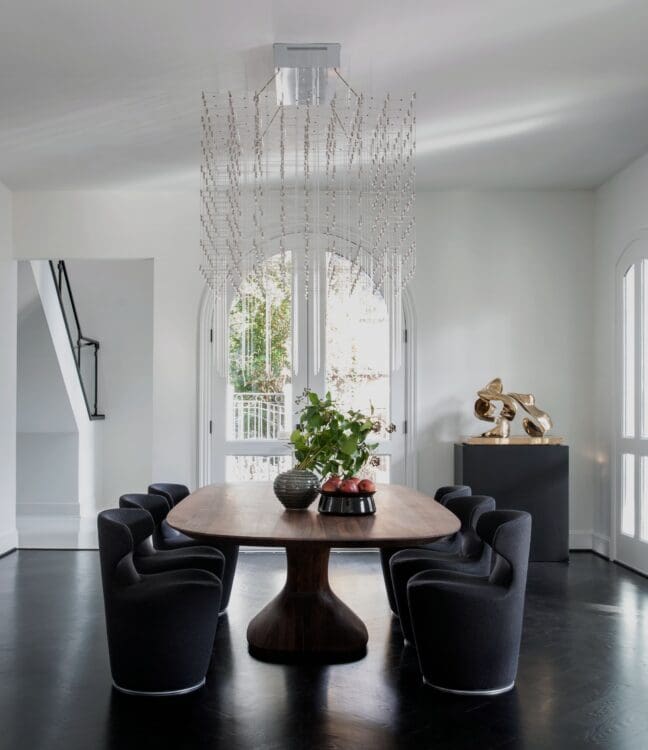
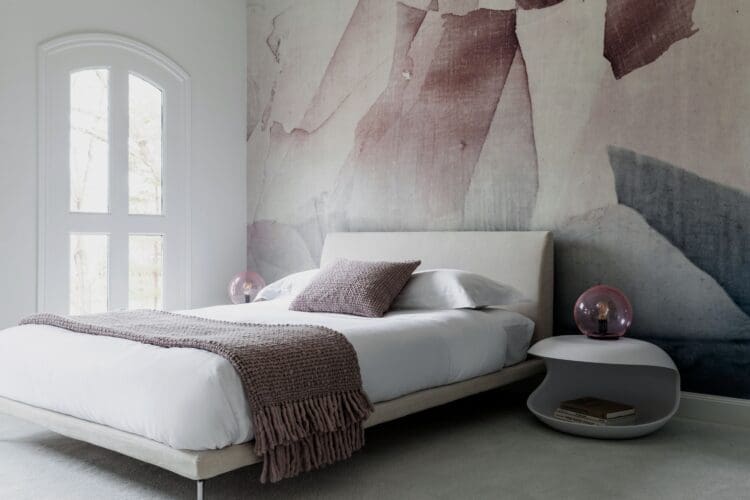
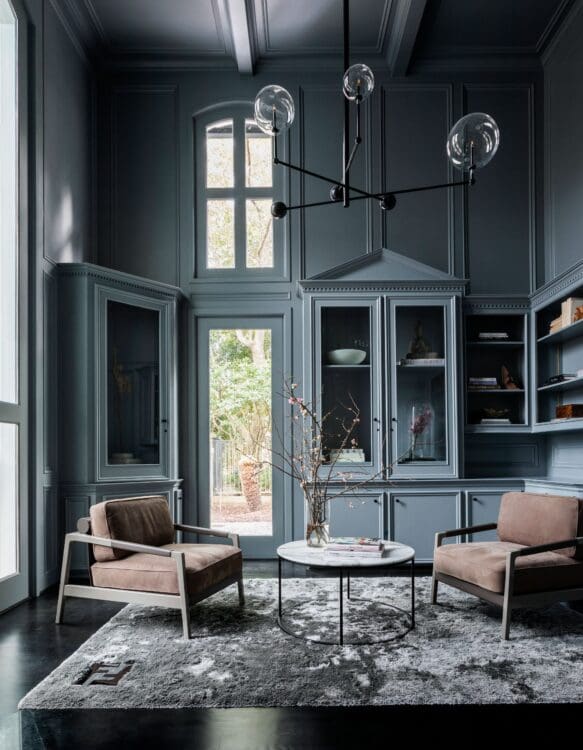
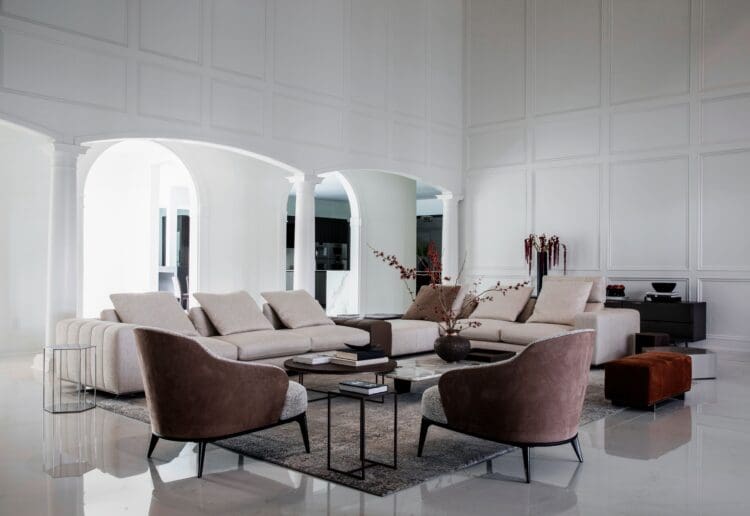
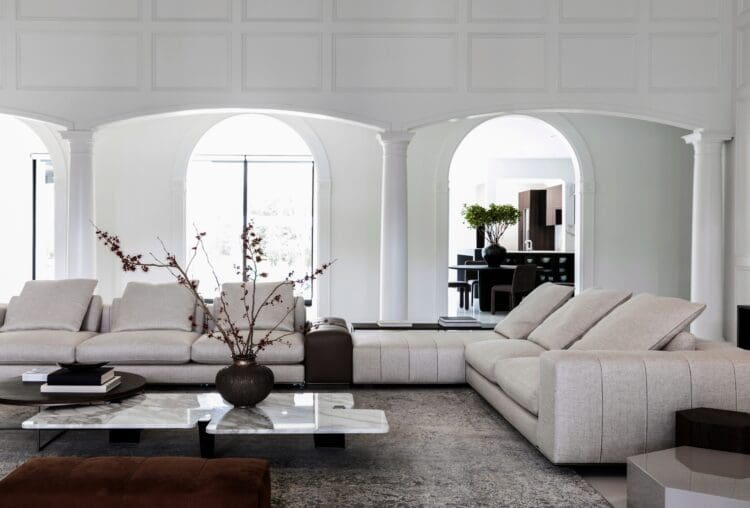
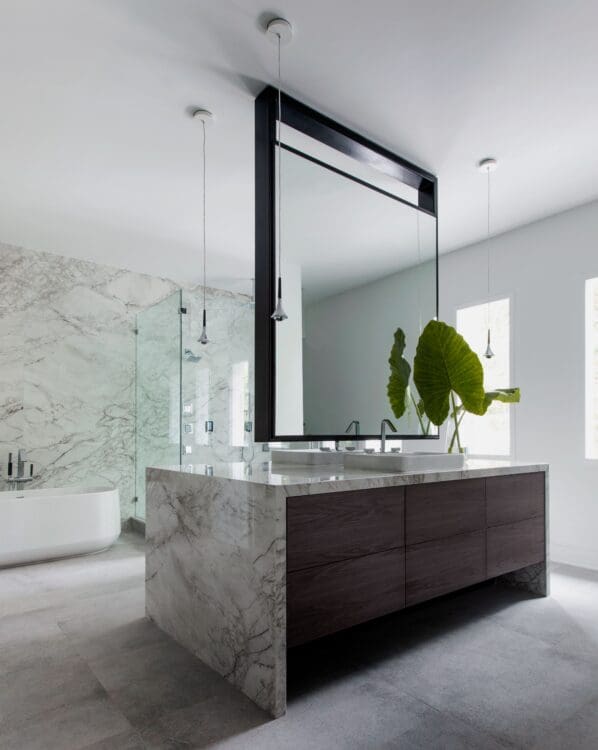 Hiring an interior designer can be a transformative decision that brings your interior design dreams to life. Throughout this article, we have explored the various reasons why engaging the services of an interior designer is beneficial, particularly for complex projects, time constraints, access to industry resources, design expertise, and adding a personalized and luxurious touch.
By collaborating with an interior designer, you can tap into their expertise, experience, and creative vision. They possess the knowledge and skills to assess your design needs, navigate complex projects, manage time constraints, and coordinate various aspects of the project seamlessly. Their access to industry resources and networks allows you to benefit from exclusive suppliers, expert knowledge, skilled tradespeople, and cost-saving opportunities.
Moreover, interior designers bring a personalized touch to your space, tailoring the design to your preferences and incorporating luxurious materials, fine craftsmanship, and curated art and decor. They have a keen eye for detail, creating harmonious layouts, selecting color schemes, and infusing creativity to enhance the overall aesthetic appeal and functionality of your space.
When considering hiring an interior designer, it is essential to choose someone who aligns with your style, communicates effectively, and understands your vision. Take the time to research and interview potential designers to find the perfect match for your project.
Investing in an interior designer is an investment in the quality and value of your living environment. Their expertise and creative insights can elevate your space, create a sense of harmony and luxury, and provide a space that truly reflects your personality and aspirations.
So, if you’re ready to embark on an interior design journey that exceeds your expectations and delivers exceptional results, consider hiring an interior designer. Their passion for design, attention to detail, and commitment to creating remarkable spaces will ensure that your interior design project becomes a stunning reality.
Hiring an interior designer can be a transformative decision that brings your interior design dreams to life. Throughout this article, we have explored the various reasons why engaging the services of an interior designer is beneficial, particularly for complex projects, time constraints, access to industry resources, design expertise, and adding a personalized and luxurious touch.
By collaborating with an interior designer, you can tap into their expertise, experience, and creative vision. They possess the knowledge and skills to assess your design needs, navigate complex projects, manage time constraints, and coordinate various aspects of the project seamlessly. Their access to industry resources and networks allows you to benefit from exclusive suppliers, expert knowledge, skilled tradespeople, and cost-saving opportunities.
Moreover, interior designers bring a personalized touch to your space, tailoring the design to your preferences and incorporating luxurious materials, fine craftsmanship, and curated art and decor. They have a keen eye for detail, creating harmonious layouts, selecting color schemes, and infusing creativity to enhance the overall aesthetic appeal and functionality of your space.
When considering hiring an interior designer, it is essential to choose someone who aligns with your style, communicates effectively, and understands your vision. Take the time to research and interview potential designers to find the perfect match for your project.
Investing in an interior designer is an investment in the quality and value of your living environment. Their expertise and creative insights can elevate your space, create a sense of harmony and luxury, and provide a space that truly reflects your personality and aspirations.
So, if you’re ready to embark on an interior design journey that exceeds your expectations and delivers exceptional results, consider hiring an interior designer. Their passion for design, attention to detail, and commitment to creating remarkable spaces will ensure that your interior design project becomes a stunning reality.
Definition of an Interior Designer
Before we delve into the reasons for hiring an interior designer, let’s establish a clear understanding of what an interior designer is. An interior designer is a trained professional who possesses a deep understanding of design principles, space planning, materials, and aesthetics. They have the expertise to transform a space into a cohesive, functional, and visually pleasing environment.Importance of Hiring an Interior Designer
While it’s tempting to take on interior design projects ourselves, there are several compelling reasons why hiring an interior designer is crucial. These professionals bring a wealth of knowledge, experience, and industry connections to the table. They can help you navigate the complexities of design, ensure efficient project management, and bring your vision to life with their creative flair. By collaborating with an interior designer, you gain access to their expert guidance, which ultimately saves you time, money, and stress.Brief Overview of the Article’s Main Points
In this article, we will explore the various scenarios in which hiring an interior designer can greatly benefit homeowners. We will discuss assessing your design needs, particularly when faced with complex projects or time constraints. We’ll also delve into the advantages of accessing industry resources and networks, as well as the expertise and creativity that interior designers bring to the table. Lastly, we’ll highlight the personalized and luxurious touch that professionals can infuse into your spaces. So, if you’re eager to discover when the right time is to bring an interior designer on board, let’s dive into the details and explore the world of design possibilities awaiting you.Assessing Your Design Needs
Before making the decision to hire an interior designer, it’s important to assess your design needs thoroughly. By evaluating your goals, budget, scope of the project, and personal style, you can determine whether the expertise of an interior designer is necessary to achieve your desired outcomes.Evaluating Your Goals and Expectations
Identify the purpose of the space: Consider the function of the room or area you want to design. Is it a living room meant for relaxation and entertainment, a home office requiring productivity, or a bedroom for tranquility and rest? Define your design goals: Determine the specific outcomes you hope to achieve through the design process. This could include creating a more open and spacious layout, incorporating specific color schemes, or integrating certain design themes.Determining Your Budget
- Assess your financial resources: Determine how much you are willing and able to invest in your interior design project.
- Research cost estimates: Gain a general understanding of the potential costs involved in hiring an interior designer and executing your desired design plan.
- Consider long-term value: Remember that investing in quality design can add value to your property and enhance your overall living experience.
Assessing the Scope of the Project
Identify the size and complexity of the project: Determine whether the project involves a single room, multiple rooms, or an entire property. Evaluate the level of expertise required: Consider the complexity of the design elements involved, such as architectural modifications, structural changes, or intricate design details.Considering Your Personal Style and Preferences
- Explore your design preferences: Reflect on your personal style and aesthetic preferences. Do you lean towards modern, minimalist, traditional, or eclectic design?
- Gather design inspiration: Browse through interior design magazines, online platforms, and social media to collect images and ideas that resonate with your vision.
- Assess your design confidence: Determine your level of comfort in executing the design plan on your own. Consider whether you have the time, skills, and knowledge to bring your vision to life effectively.

Complex Design Projects
When it comes to complex design projects, the expertise of an interior designer is particularly valuable. These projects often involve extensive renovations, new home construction, commercial spaces, or historic preservation/restoration. Let’s explore these scenarios where hiring an interior designer becomes essential for achieving remarkable results.Extensive Home Renovations
Renovating multiple rooms: When undertaking renovations that encompass several rooms, an interior designer can help create a cohesive design plan that flows seamlessly throughout the space. Structural modifications: If your renovation project involves structural changes, such as removing walls or adding extensions, an interior designer can work in collaboration with architects and contractors to ensure the design vision aligns with the structural integrity of the space.Building a New Home
Comprehensive design planning: Constructing a new home requires thoughtful consideration of every aspect of the interior design. An interior designer can collaborate with architects from the beginning, ensuring a harmonious fusion of functionality and aesthetics. Tailored customization: With a new build, you have the opportunity to create a space that is uniquely yours. An interior designer can guide you through selecting finishes, materials, and fixtures that reflect your personal style and enhance the overall design concept.Commercial Interior Design Projects
Enhancing brand identity: For businesses, creating a captivating and cohesive interior design is crucial for establishing a strong brand identity. An interior designer can help create a space that aligns with the brand’s values, appeals to the target audience, and maximizes functionality for employees and customers. Adhering to regulations and codes: Commercial spaces often have specific regulations and codes to comply with. An experienced interior designer can navigate these requirements while creating an aesthetically pleasing and functional environment.Historic preservation or restoration projects
Respecting architectural integrity: Preserving the historical integrity of a space while incorporating modern design elements requires a delicate balance. An interior designer with expertise in historic preservation can ensure that the design respects the original architectural features while enhancing the space for contemporary use. Navigating restoration challenges: Restoring a historic property involves addressing unique challenges, such as outdated systems, structural issues, or deteriorated materials. An interior designer skilled in restoration can help overcome these challenges while preserving the historical significance of the space. In complex design projects, the involvement of an interior designer is crucial for managing intricate details, coordinating with various professionals, and achieving a seamless integration of design elements. Their expertise ensures that your vision is translated into reality while addressing the complexities inherent in these projects.
Time Constraints and Project Management
Managing time constraints effectively is a critical aspect of any interior design project. Whether you have a busy schedule or require a timely completion of the project, hiring an interior designer can provide valuable assistance in streamlining the design process and ensuring efficient project management.Balancing Multiple Responsibilities
Limited availability: If you have a demanding job, family commitments, or other responsibilities, finding time to dedicate to your interior design project can be challenging. An interior designer can take on the responsibility of overseeing the project, allowing you to focus on other aspects of your life. Professional time management: Interior designers are skilled at managing their time effectively, ensuring that the project progresses smoothly within the designated time frame.Streamlining the Design Process
Expert guidance and decision-making: An interior designer brings a wealth of knowledge and experience to the table, helping you make informed decisions efficiently. They can guide you through the design choices, preventing decision fatigue and saving you valuable time. Efficient communication: Interior designers act as a liaison between you and other professionals involved in the project, such as contractors, suppliers, and craftsmen. Their expertise in communication ensures clear and timely exchanges, avoiding delays and misunderstandings.Handling Project Logistics and Coordination
Vendor and supplier management: Interior designers have access to a network of trusted vendors and suppliers. They can handle the procurement of materials, furniture, and fixtures, ensuring timely delivery and quality control. Coordinating tradespeople: In projects that involve multiple trades, such as carpenters, electricians, and painters, an interior designer can oversee the scheduling and coordination of these professionals, ensuring their tasks align with the project timeline.Ensuring Timely Completion of the Project
Project scheduling and milestones: Interior designers create comprehensive project schedules, breaking down the tasks into manageable milestones. This allows for efficient tracking of progress and ensures that the project stays on track for timely completion. Troubleshooting and problem-solving: Challenges or unexpected issues may arise during the project. An experienced interior designer can quickly address these issues, providing timely solutions and minimizing any potential delays. By enlisting the services of an interior designer, you can alleviate the stress of managing time constraints and project logistics. Their expertise in project management ensures that your interior design project progresses smoothly, adheres to the designated timeline, and ultimately saves you valuable time and effort.
Access to Industry Resources and Networks
One of the significant advantages of hiring an interior designer is their access to a vast array of industry resources and networks. These connections can greatly enhance the quality of your design project, providing access to exclusive suppliers, expert knowledge, skilled tradespeople, and valuable discounts. Let’s explore the benefits of tapping into these invaluable resources. Exclusive Access to Suppliers and Vendors Wide range of options: Interior designers have established relationships with a diverse range of suppliers and vendors. This grants you access to a wide selection of materials, furnishings, fabrics, and decor items that may not be easily available to the general public. Quality and reliability: Working with reputable suppliers ensures that you receive high-quality products and materials for your project. Interior designers can recommend trusted suppliers who consistently deliver exceptional craftsmanship and durability.Expert Knowledge of Materials and Finishes
In-depth product knowledge: Interior designers possess extensive knowledge about different materials, finishes, and their respective applications. They can guide you in selecting the most suitable options that align with your design vision, budget, and performance requirements. Trends and innovations: Staying up-to-date with the latest design trends and technological advancements is an essential part of an interior designer’s expertise. They can introduce you to innovative materials and finishes that can elevate the aesthetic appeal and functionality of your space.Connections with Skilled Tradespeople
Collaborating with experienced professionals: Interior designers have established relationships with skilled tradespeople such as carpenters, electricians, plumbers, and painters. These trusted professionals bring their expertise to the project, ensuring the highest quality of workmanship and attention to detail. Seamless coordination: By leveraging their network of tradespeople, interior designers can efficiently coordinate schedules and tasks, ensuring smooth collaboration and minimizing delays.Leveraging industry discounts and deals
Cost savings: Interior designers often have access to exclusive discounts and trade pricing, which can significantly reduce the overall project costs. These savings can help you allocate your budget more effectively and potentially invest in higher-quality materials or additional design elements. Negotiation and procurement: Interior designers are skilled negotiators who can secure the best possible prices and terms from suppliers and vendors. Their expertise ensures that you receive the most value for your investment. By working with an interior designer, you can tap into their extensive industry resources and networks, gaining access to high-quality materials, expert knowledge, skilled professionals, and cost-saving opportunities. This enables you to elevate the design of your space and create a truly exceptional environment that reflects your style and exceeds your expectations.
Design Expertise and Creativity
When hiring an interior designer, you gain the advantage of their design expertise and creativity. These professionals have a keen eye for aesthetics, an in-depth understanding of design principles, and the ability to transform your vision into a stunning reality. Let’s explore how their expertise and creativity can elevate your interior design project.Space Planning and Layout Optimization
Functional and efficient layouts: Interior designers excel in space planning, ensuring that each area serves its intended purpose effectively. They optimize the flow and arrangement of furniture, fixtures, and architectural elements to maximize functionality and create a harmonious balance within the space. Creating focal points: Interior designers have a knack for creating captivating focal points within a room, whether it’s through strategic furniture placement, architectural features, or artistic displays. These focal points draw the eye and enhance the overall aesthetic appeal.Color Schemes and Palette Selection
Harmonious color combinations: Interior designers possess a deep understanding of color psychology and the impact of different hues on our emotions and perceptions. They can guide you in selecting color schemes that evoke the desired ambiance and complement the overall design concept. Balance and contrast: Through the skillful use of color, interior designers create a sense of balance and contrast within a space. They consider factors such as natural light, room size, and architectural features to ensure that the color palette enhances the desired atmosphere.Materials, Textures, and Finishes
Selection of appropriate materials: Interior designers have extensive knowledge of different materials and their characteristics. They can recommend the most suitable materials based on factors such as durability, maintenance requirements, and aesthetic appeal. Layering textures and finishes: By incorporating a variety of textures and finishes, interior designers add depth and visual interest to a space. They skillfully combine materials such as wood, metal, glass, fabrics, and stone to create a rich sensory experience.Customized Design Solutions
Tailored to your lifestyle and preferences: Interior designers take the time to understand your lifestyle, personal preferences, and specific needs. They translate these insights into a customized design that reflects your individuality and enhances your daily living experience. Infusing creativity and uniqueness: Interior designers bring their creative flair to every project, infusing unique and innovative design elements. Their ability to think outside the box ensures that your space is truly one-of-a-kind, leaving a lasting impression on anyone who enters. By collaborating with an interior designer, you can benefit from their design expertise and creativity. They have the skills to transform ordinary spaces into extraordinary environments, incorporating thoughtful design elements, balancing aesthetics and functionality, and infusing your space with a sense of style and sophistication that is uniquely tailored to your preferences.
Personalized and Luxurious Touch
When you hire an interior designer, you open the door to a personalized and luxurious touch that elevates your space to new heights of sophistication and comfort. These professionals have a keen eye for detail and a passion for creating tailored designs that reflect your personality and bring a sense of luxury to your interior. Let’s explore how their expertise adds that extra touch of elegance to your project.Customized Design Solutions
Tailoring the design to your preferences: Interior designers take the time to understand your style, preferences, and aspirations. They incorporate elements that resonate with your personality, ensuring that your space is a true reflection of who you are. Attention to detail: Interior designers have an innate ability to pay attention to even the smallest details. They consider every element, from the selection of furniture and lighting fixtures to the placement of accessories, to create a cohesive and personalized design.Luxurious Materials and Finishes
Selection of high-quality materials: Interior designers have access to a wide range of luxurious materials and finishes that can add a touch of opulence to your space. They can guide you in selecting premium fabrics, exquisite woods, high-end metals, and other luxurious materials that enhance the overall aesthetic. Fine craftsmanship: Interior designers work with skilled artisans and craftsmen who create bespoke pieces and custom-made furnishings. These unique and meticulously crafted items contribute to the luxurious ambiance of your space.Art and Decor Curation
Showcasing art and collectibles: Interior designers have a knack for curating and displaying art and collectibles in a way that enhances the overall design. They understand how to integrate these pieces seamlessly into the space, creating a sophisticated and curated environment. Access to exclusive resources: Interior designers often have connections with art dealers and galleries, allowing you to access a curated selection of artwork and unique decor items that elevate your space to a new level of luxury.Lighting and Ambiance
Creating the perfect lighting scheme: Interior designers understand the importance of lighting in setting the mood and creating ambiance. They can design a lighting plan that incorporates a combination of task lighting, ambient lighting, and accent lighting to enhance the beauty of your space. Incorporating smart home technology: Interior designers stay up-to-date with the latest smart home technologies. They can integrate automated lighting systems, motorized window treatments, and other cutting-edge features that add convenience and a luxurious touch to your living environment. By engaging an interior designer, you invite a personalized and luxurious touch into your space. Their expertise in curating designs, selecting premium materials, incorporating art and decor, and creating the perfect ambiance ensures that your interior exudes a sense of elegance and sophistication. The result is a space that not only meets your functional needs but also envelops you in a world of personalized luxury. Hiring an interior designer can be a transformative decision that brings your interior design dreams to life. Throughout this article, we have explored the various reasons why engaging the services of an interior designer is beneficial, particularly for complex projects, time constraints, access to industry resources, design expertise, and adding a personalized and luxurious touch.
By collaborating with an interior designer, you can tap into their expertise, experience, and creative vision. They possess the knowledge and skills to assess your design needs, navigate complex projects, manage time constraints, and coordinate various aspects of the project seamlessly. Their access to industry resources and networks allows you to benefit from exclusive suppliers, expert knowledge, skilled tradespeople, and cost-saving opportunities.
Moreover, interior designers bring a personalized touch to your space, tailoring the design to your preferences and incorporating luxurious materials, fine craftsmanship, and curated art and decor. They have a keen eye for detail, creating harmonious layouts, selecting color schemes, and infusing creativity to enhance the overall aesthetic appeal and functionality of your space.
When considering hiring an interior designer, it is essential to choose someone who aligns with your style, communicates effectively, and understands your vision. Take the time to research and interview potential designers to find the perfect match for your project.
Investing in an interior designer is an investment in the quality and value of your living environment. Their expertise and creative insights can elevate your space, create a sense of harmony and luxury, and provide a space that truly reflects your personality and aspirations.
So, if you’re ready to embark on an interior design journey that exceeds your expectations and delivers exceptional results, consider hiring an interior designer. Their passion for design, attention to detail, and commitment to creating remarkable spaces will ensure that your interior design project becomes a stunning reality.
Hiring an interior designer can be a transformative decision that brings your interior design dreams to life. Throughout this article, we have explored the various reasons why engaging the services of an interior designer is beneficial, particularly for complex projects, time constraints, access to industry resources, design expertise, and adding a personalized and luxurious touch.
By collaborating with an interior designer, you can tap into their expertise, experience, and creative vision. They possess the knowledge and skills to assess your design needs, navigate complex projects, manage time constraints, and coordinate various aspects of the project seamlessly. Their access to industry resources and networks allows you to benefit from exclusive suppliers, expert knowledge, skilled tradespeople, and cost-saving opportunities.
Moreover, interior designers bring a personalized touch to your space, tailoring the design to your preferences and incorporating luxurious materials, fine craftsmanship, and curated art and decor. They have a keen eye for detail, creating harmonious layouts, selecting color schemes, and infusing creativity to enhance the overall aesthetic appeal and functionality of your space.
When considering hiring an interior designer, it is essential to choose someone who aligns with your style, communicates effectively, and understands your vision. Take the time to research and interview potential designers to find the perfect match for your project.
Investing in an interior designer is an investment in the quality and value of your living environment. Their expertise and creative insights can elevate your space, create a sense of harmony and luxury, and provide a space that truly reflects your personality and aspirations.
So, if you’re ready to embark on an interior design journey that exceeds your expectations and delivers exceptional results, consider hiring an interior designer. Their passion for design, attention to detail, and commitment to creating remarkable spaces will ensure that your interior design project becomes a stunning reality. 